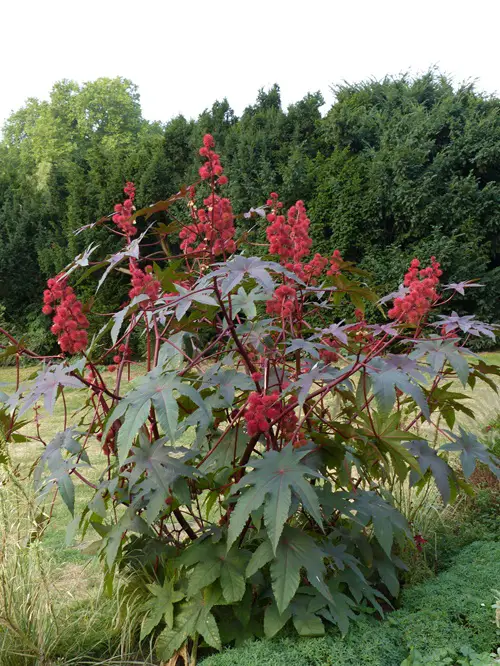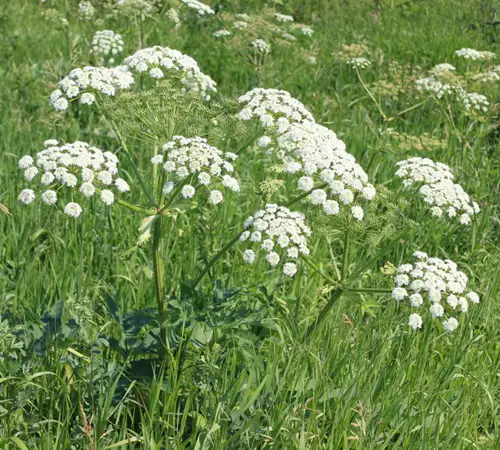Some blooms need to be admired from a distance. These Fatal Flowering Plants Can Even Kill a Human and are the most feared beauties of nature!
These assassins of the plant kingdom are so toxic that a nibble can be the last thing you taste! This article will help you identify and steer clear of fatal flowers that can even kill a human.
Fatal Flowers that Can Kill a Human
1. Oleander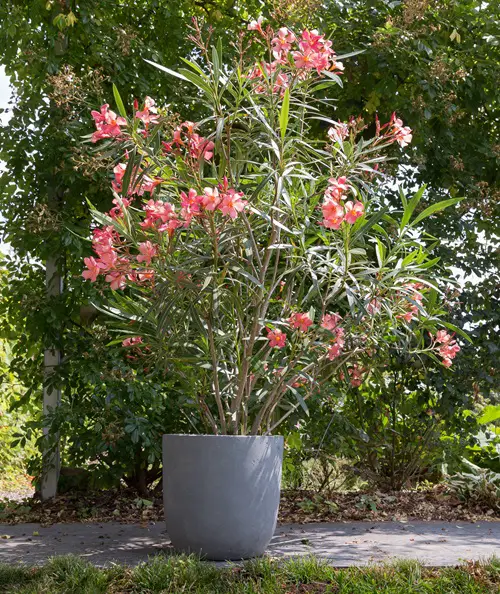
Botanical Name: Nerium oleander
This popular evergreen shrub may entice you with its 20-foot tall stature, rough, lanceolate leaves, and colorful, fragrant, funnel-shaped flowers that are so easy to grow and manageable. But it’s a trap! All parts of it contain a compound called cardiac glycoside that is toxic to humans, dogs, cats, livestock, and birds! Pollinators like bees and butterflies, however, flock fearlessly to its pink, red, and white flower clusters.
A common flower in landscaping because of its ability to tolerate poor soils, it does pose a risk to those with children or unaware of its deadly traits!
2. Deadly Nightshade
Botanical Name: Atropa bella-donna
If only it looked as deadly as its name! If you spot a drooping, purplish wildflower growing in the wastelands of Europe, turn around and walk away. This plant has alkaloids like atropine and scopolamine that are toxic to humans, pets, and livestock.
Aptly named after Atropos, the Greek fate that cuts the thread of life, it was used by women in the past to dilate their pupils for cosmetic purposes.
3. Angel’s Trumpet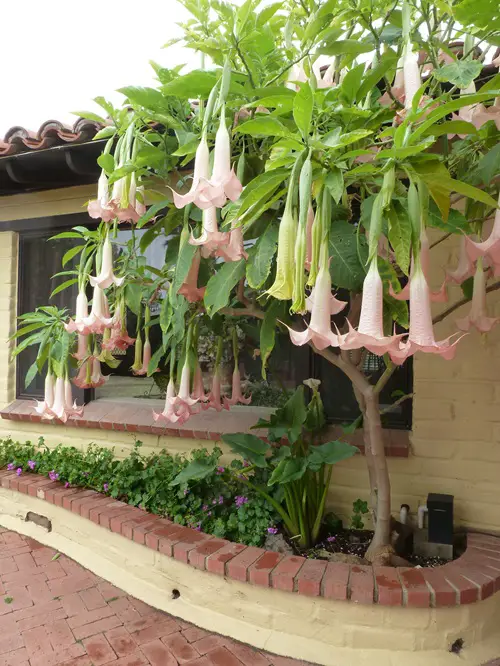
Botanical Name: Brugmansia
Next on our list of flowers that are fatal to humans is an evergreen tropical shrub or tree with beautiful pendulous blooms that comprise tropane alkaloids. If any of the parts are ingested, leaves, flowers, or seeds, these alkaloids can lead to life-threatening symptoms and even death.
Moths and bats pollinate Angel’s Trumpet due to its fragrance and nocturnal blooming, but it is toxic to pets and livestock as well. Moreover, it has been identified sitting under it in a less-ventilated space can cause mild euphoria or hallucinations.
If you do choose to grow it, plant it in well-draining soil and provide it with partial sunlight, lots of space, and seasoned water. After a year of growth, the tree will show off its large, trumpet-shaped flowers, which come in white, yellow, and pink.
4. Water Hemlock
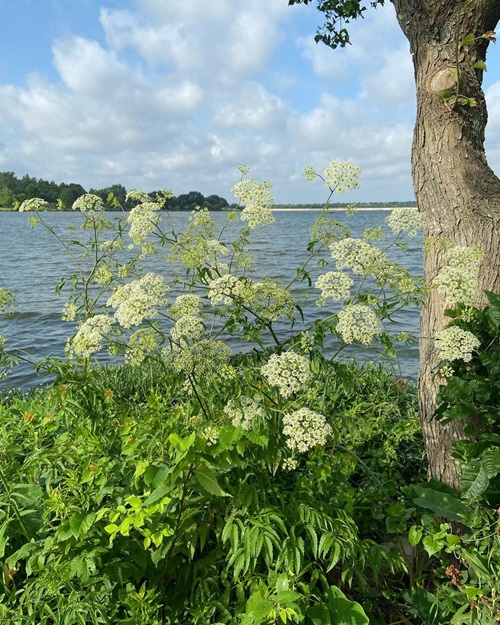
Botanical Name: Cicuta maculata
Water hemlock is a member of the carrot family, but don’t go munching on it! This perennial contains cicutoxin, which is deadly to humans, pets, and livestock. It has purple, striped to mottled hollow stems and clusters of small, white flowers.
It loves swampy locations and often grows around water sources like rivers and marshes.
5. Monkshood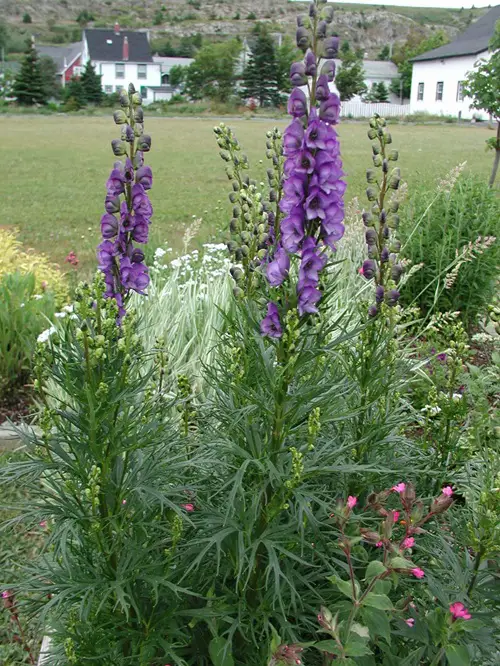
Botanical Name: Aconitum napellus
Aconitum is not a single plant but a genus of 250 highly toxic herbaceous perennials comprising alkaloids like aconitine. The most popular one, Common Monkshood is grown popularly in garden. Attracting bumblebees, its nectar-filled blooms are an inviting deep blue or purple with a hood of sorts–hence the name. Historically, monkshood was used to kill wolves and, therefore, called wolf’s bane.
They grow in humus-rich, moist, well-draining soil and prefer cool summers.
6. Foxglove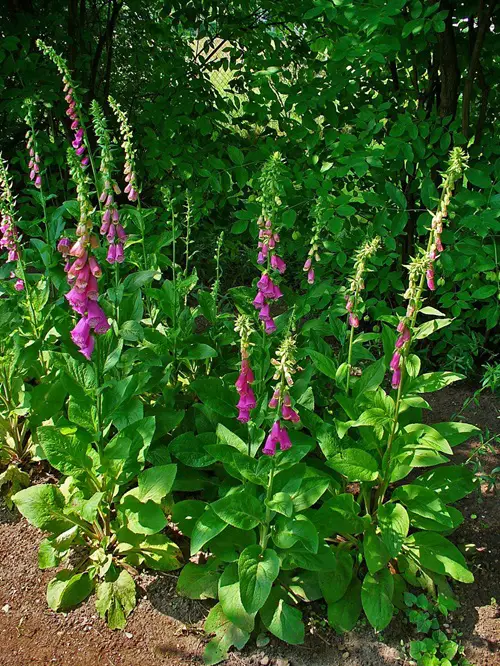
Botanical Name: Digitalis purpurea
Foxglove can be a heart-stopper, literally! Its flowers, leaves, stems, and roots contain cardiac glycosides, which can lead to cardiac arrest. Its nectar-filled tubular flowers, which appear in purple, pink, and white, are adorned with a speckled texture but they are really toxic.
This plant loves moist, well-drained soil high in organic matter and tons of sunshine.
7. Rosary Pea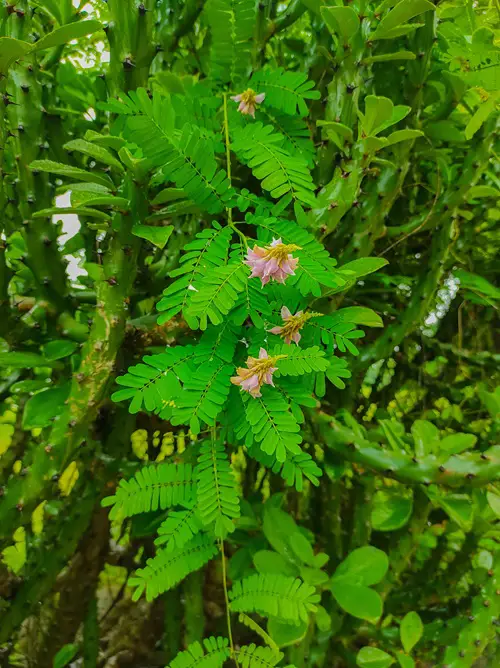
Botanical Name: Abrus precatorius
This evergreen pea naturally contains one of the most potent toxins known to man–abrin! The entire plant is toxic, but its red seeds with black spots are more so! Producing dainty pale pink blooms, this plant is illegal to grow in the USA.
Native to India and tropical Asia, its seeds are often used in jewelry and folk music instruments in other parts of the world.
8. White Snakeroot
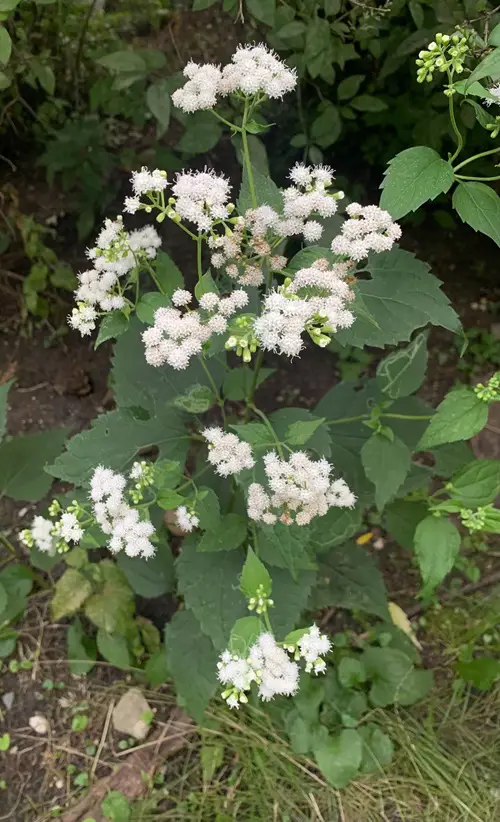
Botanical Name: Ageratina altissima
With fluffy white cloud-like blooms, this shrub is tiny, pretty, and super deadly! Almost all parts of the plant contain tremetol–a compound fatal to humans, cows, and horses. In fact, even drinking milk from poisoned cattle can be toxic!
Naturally found in eastern USA, in rich or rocky woods, thickets, and wood margins, this plant’s roots were used as a remedy for snake bites.
9. Castor Bean
Botanical Name: Ricinus communis
Castor Bean is one plant you should stay away from. Its flowers, leaves, and more importantly seeds contain a compound called ricin, which is fatal to eat and smell! Blooming in fall, it grows naturally on roadsides, fields, pastures, or other disturbed areas, especially in rich, moist soils in frost free climates.
Despite its danger, we get the popular castor oil from its seeds, with its many uses in medicine and various industries.
10. Autumn Crocus 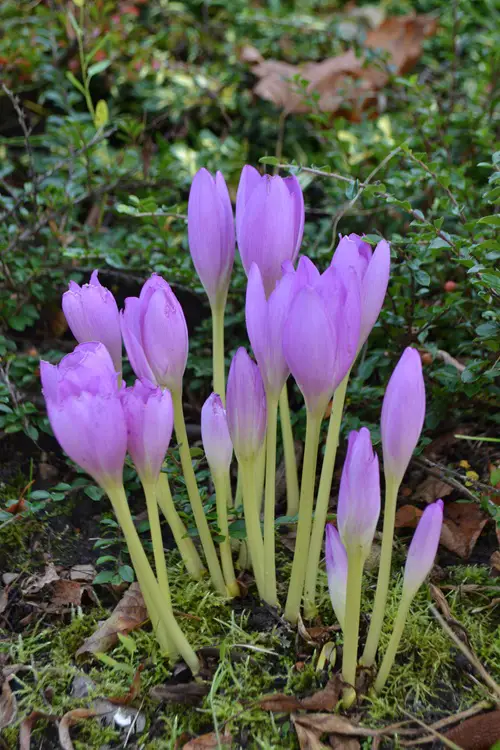
Botanical Name: Colchicum autumnale
This popular perennial herb is a classic fall favorite with lilac and pink goblet-shaped blooms! However, it contains high amounts of the toxin colchicine, which is used in medicinal purposes, but can also be lethal to humans and pets.
On a positive note, even these flowers bloom in the fall and aren’t all that toxic!
11. Yellow Jessamine
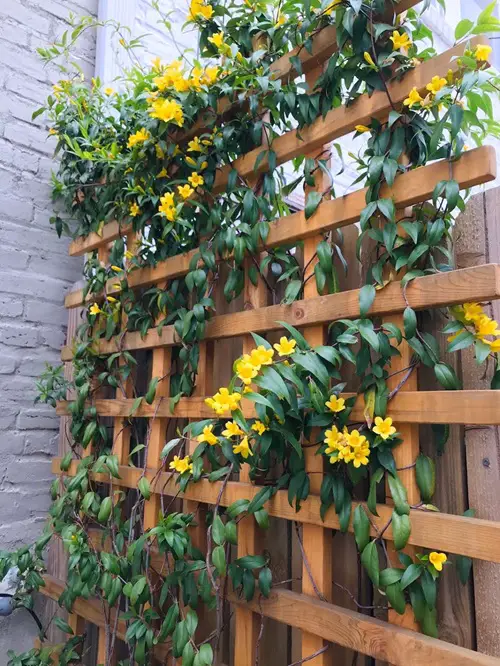
Botanical Name: Gelsemium sempervirens
Yellow Jessamine, or Carolina Jessamine, is the state flower of South Carolina. Despite its recognition, it isn’t a human-friendly bloom. Almost every part of this plant is highly poisonous and eating a few flowers or roots can kill humans due to its high concentration of alkaloids.
But the flowers are really a sight to behold! Blooming in spring, they are fragrant, bright yellow, trumpet-shaped, and have a waxy texture.
12. Poison Hemlock
Botanical Name: Conium maculatum
Last on our list of fatal flowers is the poison hemlock, made famous as the plant that killed the Greek philosopher Socrates! Growing to 10 feet tall and six feet wide, this plant is responsible for quite a few deaths to this day. It contains the alkaloid coniine, and consuming it can lead to a weak pulse, convulsions, coma, and death!
Poison hemlock is also a member of the carrot family and can be distinguished by its clustered small, white flowers. However, these plants are notoriously weedy and can grow in the wildest conditions, risking the lives of livestock as well.



